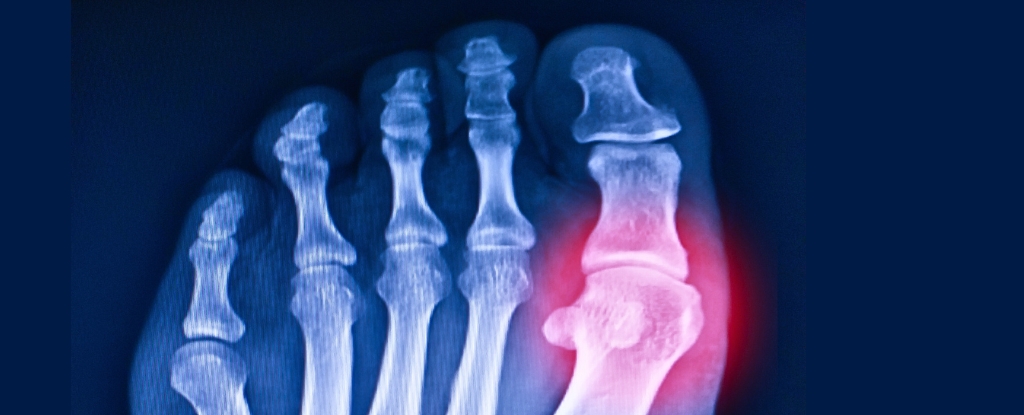
Gout
Gout is a form of inflammatory arthritis characterized by recurrent attacks of a red, tender, hot and swollen joint, caused by deposition of monosodium urate monohydrate crystals. Pain typically comes on rapidly, reaching maximal intensity in less than 12 hours. The joint at the base of the big toe is affected in about half of cases. It may also result in tophi, kidney stones, or kidney damage. Gout is due to persistently elevated levels of uric acid in the blood. This occurs from a combination of diet, other health problems, and genetic factors. At high levels, uric acid crystallizes and the crystals deposit in joints, tendons, and surrounding tissues, resulting in an attack of gout. Gout occurs more commonly in those who: regularly drink beer or sugar-sweetened beverages; eat foods that are high in purines such as liver, shellfish, or anchovies; or are overweight. Diagnosis of gout may be confirmed by the presence of crystals in the joint fluid or in a deposit outside the joint.




